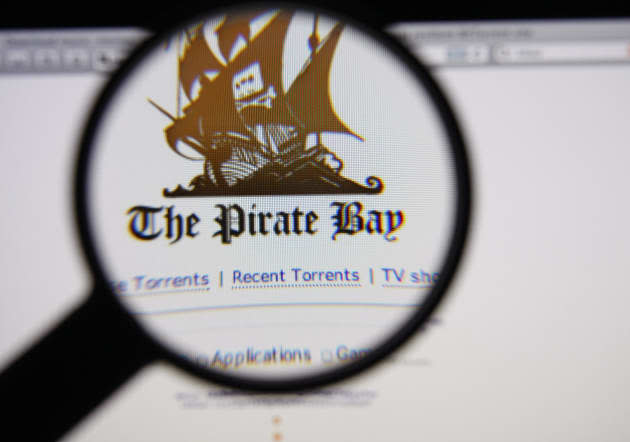UK police smug after 'major success' blocking pirate site ads

The UK's Police Intellectual Property Crime Unit (PIPCU) is patting itself on the back today, claiming a small victory in its ongoing war against online piracy. The specialist division announced that its plan to target the coffers of copyright-infringing websites has resulted in a 73 percent decrease in advertising on these illicit portals from the UK's biggest digital ad spenders. "Operation Creative" was launched by the PIPCU back in 2013 with the specific goal of disrupting online piracy. When the best-case scenario of pressuring a copyright-infringing site to turn legit fails, as we imagine all attempts do, the fuzz turn to other "tactical options." These include shutting the site down with the help (or else) of the domain registrar, or starving the pirate captains' bank accounts by putting a dent in their advertising revenues.
To do this, the PIPCU created the Infringing Website List (IWL), a constantly updated database of piracy-promoting pages. The rozzers make this available to the UK advertising industry, which can then use it to stop pushing adverts to these sites on a voluntary basis. The idea being: fewer big-name ads, the less legitimate a site looks to unsuspecting visitors (as if they didn't know it was hosting illegal content already), and the less money pirates make from advertising revenue. Last year, the PIPCU decided to take this initiative a step further by commandeering ad space on nefarious sites for its own banners, which announced the portal in question was under investigation. These aren't intended to scare you into thinking you're on the cusp of being busted, of course, but to alert you to the fact that Game of Thrones torrent isn't an official HBO release.
Today's update on Operation Creative heralds the attack on advertising revenues as a "major success." As the PIPCU reports, its efforts have managed to bring about a 73 percent decrease in ads from the UK's biggest digital marketing companies appearing on illegal sites. "Highlights include the automotive, food and drink and real estate sectors, whose advertising has almost entirely stopped appearing on pirate sites." How did they arrive at this figure, exactly? Well, as the BBC explains, a research firm looked at 17 websites offering illegal content during two three-month stints in 2013 and 2015, and noted this significant decrease in adverts appearing from "top ad spending companies."

The problem with stats are: sometimes they mean what you want them to mean. Forgiving the relatively small website sample size, PIPCU do have a legitimate reason to gush over the 73 percent decline in big-name ads. For some sites, at least, it means they're now working with a smaller pool of advertisers, some of which might not pay as well as the ones they've lost. But in our experience, even the most well-known illegal content portals typically host ads pushing porn, malware and ropey online games, and always have done.
The information we're sorely missing is what kind of impact this is having, if any. Are illegal websites actually suffering to any great degree, or are the adverts that still run on these portals keeping them as well-funded as they've always been? Is anyone looking for the latest episode of True Detective legitimately put off by the lack of big-brand ads on their go-to torrent site?
Furthermore, is the PIPCU's website blacklist comprehensive enough to starve illicit sites out of existence and deter piracy as a result? We're not so sure. As site-blocking at the ISP level has taught us, proxies are a pirate's best friend. The PIPCU might be celebrating a small victory today, but chances are that one statistic is almost meaningless in a war that often seems will never be won.
[Image credits: Alamy (lede) / Shutterstock (body)]

